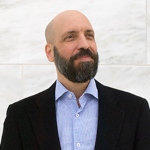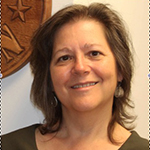
- This event has passed.
Climate, Agriculture, Farm Bill 2023
November 18, 2020 @ 11:00 am – 1:00 pm PST
2020 Policy Outlook – Funder Strategy Conference Session 1 – We will kick off the conference with a presentation and breakout discussions with policy and grassroots experts, who represent the diversity of farm and food systems from across the country, to share their thinking around political opportunities for bold new ideas for 2023 Farm Bill. We will examine where equity shows up, and where it doesn’t across the entire farm bill. We will move into peer-to-peer strategy sessions designed to explore and facilitate funder collaboration to leverage our impact to move forward just, equitable and sustainable federal climate, agriculture, and food policy.
Conference session dates:
November 18, November 30, December 9, December 16
Entire Series (Conference & Pre-Conference Sessions):
$375 SAFSF Member / $500 Non-member funder
The cost of registration includes:
Honoraria for non-funder speakers who will be the foremost policy experts and grassroots leaders in the field;
The Farm Bill, A Citizen’s Guide (book by Daniel Imhoff);
Professional facilitation with Co-Creative for the Funder Strategy Conference on November 18, 30, and December 9, 16.
Speakers:
Todd Barker, senior partner, Meridian Institute
Todd Barker is a Senior Partner and Practice Director at Meridian. He currently leads projects that focus on agriculture, food systems, water, climate, big data, and clean energy. A highlight of his tenure at Meridian has been the AGree Initiative, which successfully advocated and lobbied for changes in the 2018 farm bill that support soil health. He also has extensive international experience, including current work with the Global Alliance for the Future of Food.
Todd cut his teeth as a mediator, facilitator, and strategist over 20 years ago, working on the cleanup of Rocky Flats nuclear weapons facility. He is a trusted advisor to foundations and funder collaboratives working on agriculture and food systems. He serves on the board of the DendriFund and chairs the board for the Clean Energy Group.
Todd lives in Vermont with his partner Val, where they run a part-time B&B for fun. When Todd isn’t working or spending time with his kids, you’ll find him running, skiing, or cooking with Val.
Rev. Dr. Heber Brown, founder/executive director, Black Church Food Security Network

Rev. Dr. Heber M. Brown, III is a community organizer, beginner farmer, social entrepreneur and Senior Pastor of Pleasant Hope Baptist Church in Baltimore, Maryland. For nearly two decades, Dr. Brown has demonstrated a deep commitment to and advocacy on a myriad of social justice concerns at every level of government, business, and at the grassroots level as well. He is a catalyst for social change who believes that systemic problems need systemic solutions
Toward that end, in 2015 in the midst of the Baltimore Uprising which sparked after the death of Freddie Gray, he launched the Black Church Food Security Network which combats food apartheid by providing seed funding and support to help congregations begin growing food on church-owned land. The Network also works to partner Black Churches and Black Farmers in the Mid Atlantic region in an effort to create a community-controlled, alternative food system based on self-sufficiency and Black food and land sovereignty.
Eric Debbble, policy director, National Sustainable Agriculture Coalition

Eric is a large animal veterinarian (University of Pennsylvania, 2013) who prior to joining NSAC worked in the US Senate on farm and food policy with the office of Senator Kirsten Gillibrand (D-NY). His commitment to sustainable, equitable, and just food systems comes from his time with farmers, ranchers, dairy producers and the people who make sure the food they produce is safe, affordable, and available to everyone in their own community. Prior to his veterinary career, he worked in the not-for-profit sector ensuring safe housing conditions for elderly and disabled persons.
Lorette Picciano, executive director, Rural Coalition

Lorette Picciano is executive director of the Rural Coalition/Coalición Rural, a Washington, DC-based alliance of more than 70 culturally diverse community-based organizations representing small producers and farmworkers in the US and Mexico, since 1992. RC promotes just and sustainable development in rural areas. Lorette is participating in her eighth farm bill debate. In the 2008 farm bill debate, Lorette coordinated the Farm and Food Policy Diversity Initiative, a collaboration of almost a dozen organizations representing socially disadvantaged producers and farmworkers in a unified effort to assure equal access to USDA programs by farmers, ranchers, and farmworkers. As a result of the initiative, more than 30 sections of new policy were included in the farm bill to benefit socially disadvantaged producers. One success of RC’s efforts was the approval of the pilot project to fund high tunnels as a conservation practice under the EQIP program. Lorette has helped initiate and coordinate the “Getting Our Act Together (GOAT)” network, which has been meeting since the 2014 farm bill process.
Brise Tencer, executive director, Organic Farming Research Foundation

Brise brings 20 years of leadership experience working on organic food policy, and research issues to OFRF. Brise most previously served as Director of Policy and Programs for California Certified Organic Farmers (CCOF), where she managed the government affairs and grower education program. Prior to that, she served as lead lobbyist on food and agriculture issues for the Union of Concerned Scientists. There she developed legislative campaigns on a range o agriculture issues, including organic (focusing on the connection between organic practices and climate change), USDA research priorities, and food safety. She also worked on a successful campaign to end overuse of antibiotics in livestock production. Brise worked as Acting Policy Program Director and Legislative Coordinator for the Organic Farming Research Foundation from 2000 to 2006. During this time, she helped initiate Action network (OFAN), a grassroots political action network to support organic-friendly policies. She helped secure language in the Agriculture Risk Management Act of 2000, which said that organic farming was considered a “good farming practice,” that enabled organic producers to be eligible to participate in federal crop insurance programs for the first time. Brise holds M.A. in International Environment Policy from the Monterey Institute of International Studies.Edit BIO